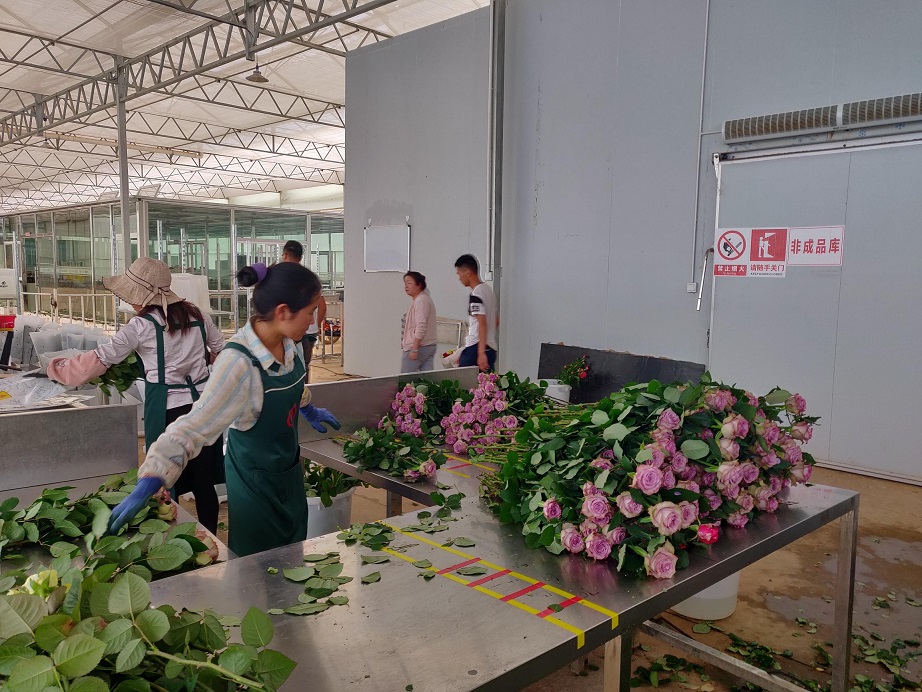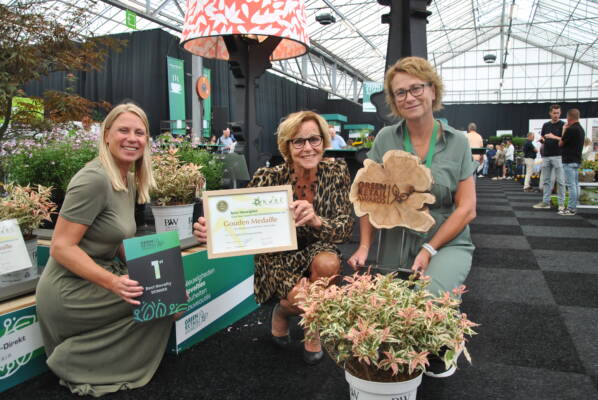Note from the editor. The publisher has carefully weighed publication of this article in consultation with Codema. The decision to publish has been taken because positive industry news from China may provide support to the members of the global ornamental horticulture community. However, the publisher also stresses that it is extremely difficult to verify the authenticity of words and is therefore not liable for the content.
BERGSCHENHOEK, Netherlands: Now that China’s National Health Commission today (March 20) reported no new coronavirus cases for a second day in a row, horticultural automation producer Codema asked colleagues at their Beijng office how horticultural businesses are doing after the deadly outbreak of COVID-19. While quarantine restrictions are still in place across the country, horticultural entrepreneurs never stopped their activities. While growers of fresh produce do reasonably well, producers of flowers and plants face a sharp decline in demand.
During the two-month stagnation in China, many companies within the horticultural industry, including Codema’s own China branch, have suffered a lot. However the company stresses that if firmly believes in people’s strength, resilience and willingness to support each other to overcome trying times.
From their office in Beijing, the Codema’s China team reports that schools in China have been closed for more than two months now. The children receive a daily explanation video from their tutor and then work on the main subjects. Probably, the schools will reopen soon. Companies and factories are reopening, albeit slowly. Office workers continue to wear masks and have their body temperature checked daily. Shifts are used to limit the number of employees at the same time.
Growers have never stopped their activities. Fresh produce growers are doing well and logistics are returning to an acceptable state. However, Chinese plant growers and flower growers face a sharp drop in demand.
Following the outbreak of the coronavirus, CODEMA has stayed in close contact with their Chinese customers and business relations to discuss the economic impact of the virus and develop response strategies.
A representative of Lanzhou New District Agricultural Investment Group provides some details about the company’s action plan. “We called for resumption of work on 3 February. All staff wears masks, we daily disinfect our offices and check the body temperature of all visitors. We have opened online sales channels and sell flowers and plants through WeChat. Currently, B2B and e-commerce are combined to sell online and offline at the same time.”
Shanghai Hezhong Economic and Trade Development Co., Ltd. explains what they did during the outbreak: “Our sales channels are online and offline. During the epidemic, logistics opportunities stagnated, leaving only express delivery, almost all flower markets were closed, and offline sales were zero. Online sales were also almost zero because there was no logistics to support delivery. Everyone stayed at home and communicated with the outside world through the Internet. We think that the coronavirus outbreak is shaking up business which will increasingly move online. So we decided to strengthen our online business, which can be B2B or B2C and operated directly or through other platforms. In the face of sudden outbreaks, we do our utmost not to be afraid of danger and plan for the future.”
An employee at Xiamen Aiken Horticulture Co., Ltd. says, “The epidemic affected logistics and limited express delivery. Projects originally planned by customers were postponed or even cancelled, which resulted in the backlog loss of the pre-produced crops. Our plant was closed, group activities were cancelled, and holiday homes caused a plummeting demand for flowers. The sales season of young plants was disrupted, and orders, transactions and shipments were affected. The new variety exhibition originally planned to be held in Chengdu, Sichuan, in April 2020 has also been cancelled. In the end, the epidemic has made us more professional, better aware of safety and has made our logistics more efficient.
“The epidemic has accelerated the change of business models, leaving out the middle men and selling directly to flower shops and consumers instead. It also boosted the collaboration with multiple channels. At the same time, social platforms serve to increase our company’s visibility and exposure. The epidemic also allowed to have more and more flexible sales channels, a better understanding of the end consumer’s demands , and it provided a rich experience for future transformation.
“Looking forward to the future, the companies that can survive this epidemic will eventually usher in more robust growth, their brand concept will be more deeply rooted in the hearts of the people, and the most brutal natural law of survival and elimination will occur in all walks of life. At that time, the flower industry will usher in a more regulated market, more standardized production and cultivation, and more diverse sales and distribution channels.”


























